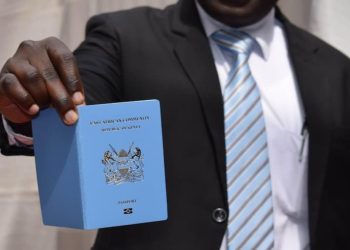BY JAMES ONYANGO
Between June 14 to July 15 this year, Russia hosted the most expensive edition of the FIFA World Cup in the history of the tournament, attracting special praise from FIFA President Gianni Infantino who declared it the best FIFA tournament.
It takes proper organisation, meticulous planning, a dedicated team and financial resources to put together a tournament that attracts special praise, particularly if you are hosting football superstars like Portugal’s Cristiano Ronaldo, Argentina’s Lionel Messi, France’s Kylian Mbappe, England’s Gareth Bale and Argentina’s football legend Diego Maradona who are accustomed to first-class treatment in hotels and airports.
Still, you have high-profile guests like French President Emmanuel Macron and Croatia’s Kolinda Grabar-Kitarović and a host of big names in entertainment, business and sports. So how did Russia succeed in hosting the tournament?
Here are the management lessons from the 2018 FIFA World Cup in Russia.
Dedicate resources to the task at hand
Russia spent a total of KSh1.3 trillion (USD13 billion) to get12 stadiums ready and host the tournament. Work on hosting the tournament actually started the moment Russia won the bid to host it on December 2, 2010. Specifically, Russia spent more than KSh20.6 billion to make 12 stadiums ready, and offered free transport for fans travelling through the country’s impressive underground rail network.
In January 2011, the Russian government and the Russian Football Federation constituted the 2018 World Cup Local Organising Committee (LOC), the central committee in charge of overseeing construction of match venues to FIFA standards. The committee was also tasked with planning and staging the 2017 FIFA Confederations Cup used to test World Cup venues, and to organise the 2018 FIFA World Cup.
Get the right people for the job
In 2008, Luzhniki Stadium in Moscow hosted the final of Europe’s top club competition, the UEFA Champions League, between Chelsea and Manchester United. Russian Allexey Sorokin was a project leader for that match, before becoming the Chief Executive Officer of the Russian Football Union the same year. When Russia won the bid to host the World Cup, Sorokin, a graduate of Moscow State Linguistic University and State Diplomacy who also speaks fluent English and French, was appointed the chairman and chief executive officer of the 2018 FIFA World Cup Local Organising Committee. The soft-spoken 46-year-old was an able leader under whose watch the Local Organising Committee had sold a total of 2.4 million tickets out of the available 2.6 million by the time the 48-group stage matches out of a total of 64 matches had been played, representing 98 per cent uptake going into the knock-out stage. He had the right words to calm down journalists who were angry at FIFA’s delay in releasing results of dope tests done on footballers at the 2018 World Cup.
Team work is everything
The 2018 FIFA World Cup Local Organising Committee was in charge of organising and running the tournament, but it could not have achieved any success without volunteers. From the time Russia won the bid to host the World Cup, the committee went about identifying an army of 17,404 volunteers, mostly Russian university students, to serve in the tournament. They applied to be selected for both 2017 FIFA Confederations Cup and 2018 World Cup through FIFA’s website between June and December.
On basis of analytical skills, personal qualities, and command of English, the committee selected 17,404 volunteers, some of them meant for VIP areas, and trained them to serve in the tournament. The young men and women who dressed in maroon tops and blue trousers worked as guides inside stadiums, metro stations, bus stops and train stations across the 11 host cities, making life easier for the visiting fans as they spoke English. That solved the problem of language as most Russians don’t speak English. They were also stationed at fan zones located in 11 host cities where all the 64 matches were screened live on giant television screens.
Make full use of your abilities
Russia reaped revenue from tourism. In between matches and on rest days, fans visited historical sites to sample the country’s food and hospitality. From river cruises up River Moscow aboard ferries and boats to visit some of Russia’s most magnificent attractions like Zaryadye Park, the Moscow Kremlin, Saint Basil’s Cathedral, the Cathedral of Christ the Saviour and Peter the Great Statue, Russia reaped revenue through tourism. Open-top bus tours around Moscow, trips to Lenin’s Mausoleum and the Space Museum in Moscow as well as visits to Bolshoi Theatre and St Basil’s Cathedral built in 1555 were popular with football fans.
Turn challenges into opportunities
Just months after hosting a successful 2014 Winter Olympic Games in the Black Sea resort city of Sochi, Russia made headlines for the wrong reasons. German undercover journalist Hajo Seppelt unearthed doping scandal involving Russian athletes. The International Olympics Committee responded by banning Russians from competing in the 2016 Olympic Games in Rio de Janeiro, Brazil.
Russia’s poor human rights record, the country’s annexation of Eastern Ukraine, its involvement in the Syrian conflict and worsening diplomatic relations with the United Kingdom and USA gave Russia a bad image internationally in the period leading to the World Cup. The United Kingdom even warned her citizens against travelling to Russia for the tournament. However, President Vladimir Putin issued a rallying call to Russians to support the tournament and to help change negative perceptions about the country. Russians responded in style, showing their hospitality to the world. Fast-forward to July 12 and you have FIFA president Infantino praising Russia for hosting the best World Cup.
James Onyango is a PhD student at Moi University. Email: Jamesy.news@gmail.com















